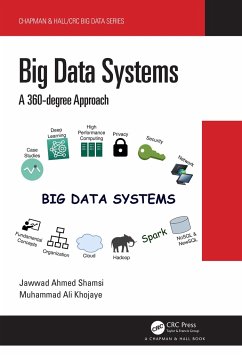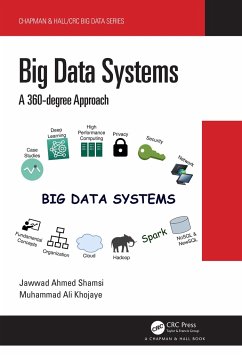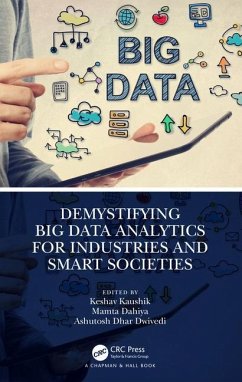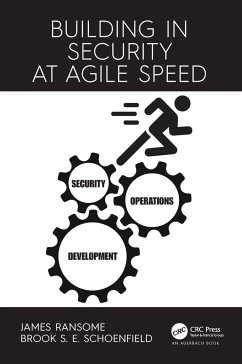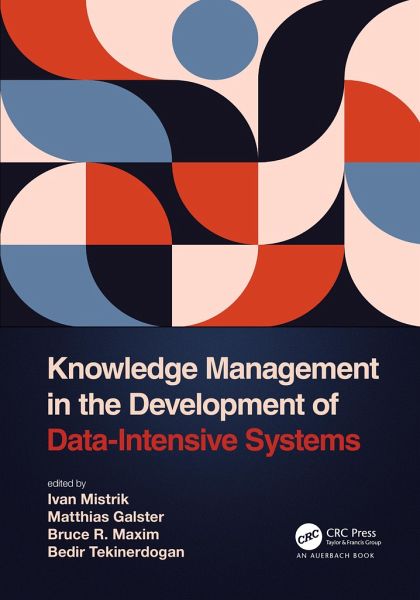
Knowledge Management in the Development of Data-Intensive Systems
Versandkostenfrei!
Versandfertig in 6-10 Tagen
112,99 €
inkl. MwSt.
Weitere Ausgaben:

PAYBACK Punkte
56 °P sammeln!
Data-intensive systems are software applications that process and generate Big Data. Data-intensive systems support the use of large amounts of data strategically and efficiently to provide intelligence. For example, examining industrial sensor data or business process data can enhance production, guide proactive improvements of development processes, or optimize supply chain systems. Designing data-intensive software systems is difficult because distribution of knowledge across stakeholders creates a symmetry of ignorance, because a shared vision of the future requires the development of new ...
Data-intensive systems are software applications that process and generate Big Data. Data-intensive systems support the use of large amounts of data strategically and efficiently to provide intelligence. For example, examining industrial sensor data or business process data can enhance production, guide proactive improvements of development processes, or optimize supply chain systems. Designing data-intensive software systems is difficult because distribution of knowledge across stakeholders creates a symmetry of ignorance, because a shared vision of the future requires the development of new knowledge that extends and synthesizes existing knowledge.
Knowledge Management in the Development of Data-Intensive Systems addresses new challenges arising from knowledge management in the development of data-intensive software systems. These challenges concern requirements, architectural design, detailed design, implementation and maintenance. The book covers the current stateand future directions of knowledge management in development of data-intensive software systems. The book features both academic and industrial contributions which discuss the role software engineering can play for addressing challenges that confront developing, maintaining and evolving systems;data-intensive software systems of cloud and mobile services; and the scalability requirements they imply. The book features software engineering approaches that can efficiently deal with data-intensive systems as well as applications and use cases benefiting from data-intensive systems.
Providing a comprehensive reference on the notion of data-intensive systems from a technical and non-technical perspective, the book focuses uniquely on software engineering and knowledge management in the design and maintenance of data-intensive systems. The book covers constructing, deploying, and maintaining high quality software products and software engineering in and for dynamic and flexible environments. This book provides a holistic guide for those who need to understand the impact of variability on all aspects of the software life cycle. It leverages practical experience and evidence to look ahead at the challenges faced by organizations in a fast-moving world with increasingly fast-changing customer requirements and expectations.
Knowledge Management in the Development of Data-Intensive Systems addresses new challenges arising from knowledge management in the development of data-intensive software systems. These challenges concern requirements, architectural design, detailed design, implementation and maintenance. The book covers the current stateand future directions of knowledge management in development of data-intensive software systems. The book features both academic and industrial contributions which discuss the role software engineering can play for addressing challenges that confront developing, maintaining and evolving systems;data-intensive software systems of cloud and mobile services; and the scalability requirements they imply. The book features software engineering approaches that can efficiently deal with data-intensive systems as well as applications and use cases benefiting from data-intensive systems.
Providing a comprehensive reference on the notion of data-intensive systems from a technical and non-technical perspective, the book focuses uniquely on software engineering and knowledge management in the design and maintenance of data-intensive systems. The book covers constructing, deploying, and maintaining high quality software products and software engineering in and for dynamic and flexible environments. This book provides a holistic guide for those who need to understand the impact of variability on all aspects of the software life cycle. It leverages practical experience and evidence to look ahead at the challenges faced by organizations in a fast-moving world with increasingly fast-changing customer requirements and expectations.





